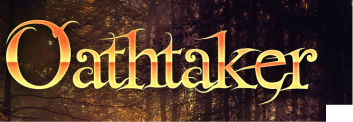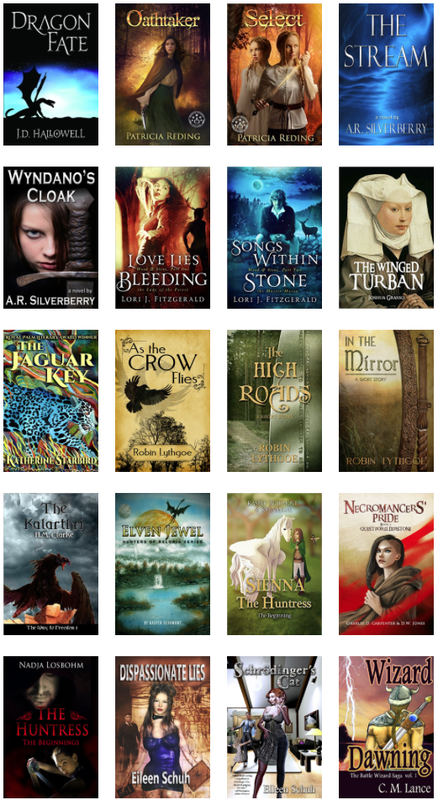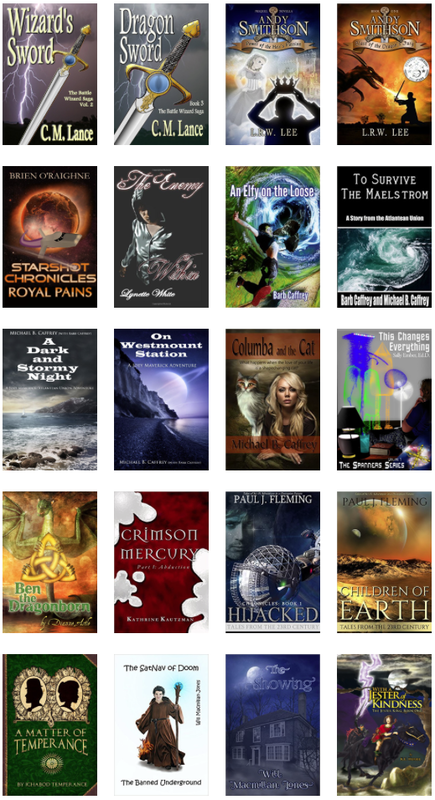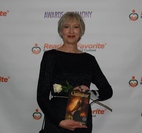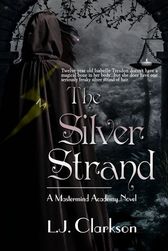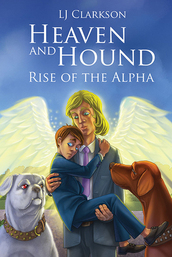|
What a wonderful time of the year! I am excited this holiday season, to join up with some wonderful authors of fantasy and science fiction in an END-OF-THE-YEAR BLOCKBUSTER SALE! The Fantasy Sci-Fi Network is having a blockbuster sale, beginning December 19, and running through December 31, 2015. The sale includes some free books, numerous 99-cent deals, and additional deeply discounted works. You’ll find the best from award-winning authors, such as A. R Silverberry, L. R. W. Lee, J. D. Hallowell, and—yours truly, Patricia Reding. Also, you’ll find wonderful works from up-and-coming authors like Joshua Grasso, Robin Lythgoe (both of whom write some great comedy-fantasy!), Kasper Beaumont, and many more. Find them all here. I’ve added to the collection of works on sale, discounting both OATHTAKER (The Oathtaker Series, Book One), and SELECT (The Oathtaker Series, Book Two) from their regular low price of $2.99 each, to . . . wait for it . . . just 99-cents! Pick up your copies today or grab some for those on your holiday shopping list (from 13 to 80)! Oathtaker and Select are available for your Kindle on Amazon, for your Nook from Barnes and Noble, and also through iBooks, Kobo, ScribD, Inktera (Page Foundry), Tolino, and Oyster. (Direct links for where to purchase are found here and here. (Watch closely, as some sale price changes may take up to 48-hours to take effect.) Still not sure? Well, that’s easy to resolve: start reading for free here or here. Take advantage of this great sale to stock up on loads of fantasy and sci-fi fun for yourself and for those on your holiday shopping list. Grab them quickly, as many of the special savings will disappear without notice! (So, be sure to double-check before you hit “buy.”) HAPPY HOLIDAYS EVERYONE!
This month, we Quills asked the following question: Is there any particular code, belief or faith that inspires your writing and how/why/why not?  Kristie Kiessling, author of Sanguis Dei, has some thoughts to share . . . Japan, her people, and her language has fascinated me since grade school The beauty and mystery of such an ancient place takes me to a land I've never seen, but long to visit. From this far off isle comes a philosophy that strikes a chord in my soul and meshes with the beliefs that inspire and underscore every aspect of who I am as a writer. Read more here.  Here is what Robin Lythgoe, author of As the Crow Flies, has to say . . . In all honesty, I don’t think the limited space of this format is up to the task of dealing with the subject. The best we can do is skim the surface of the tender, personal area that is our beliefs, codes, or faith. Do I have faith? Read more here. 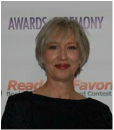 Now, for my thoughts. This month, we Quills asked the following question: Is there any particular code, belief or faith that inspires your writing and how/why/why not? This is a loaded question—and not one fully answered in a few short paragraphs—but I can share some general thoughts . . .
At the outset, I would say that this topic makes me think of posing the following question to a judge: can you render a decision without letting your ideology play any part? Anyone who’s ever studied the law knows that it is unlikely. A judge arrives at his decision because of who he is, and what he believes in. His life experience colors the interpretation of the law he will apply to the facts at hand, as well as his understanding of the events that transpired. Similarly, every writer is a combination of her experiences, her successes and failures, and of her beliefs. It may be that someone who writes about our current world, could draw with her words what she sees in society with little input of her own code or belief. Even then, however, what she chooses to tell you about in her story, it seems to me, reflects something about her and about what she sees as important. Indeed, I think it would be impossible for any author’s writing not to reflect those things. If this is true of a writer of contemporary fiction, it is even more true of a fantasy writer. The world set forth in a fantasy writer’s tale doesn’t exist. She has to make everything up—the systems, the rules of law, societal norms, and characters. How could a writer possibly create those things without drawing on what she knows? It would be like writing without words, or making music without sound, or describing things without color. In short, I don’t think it likely that a writer—particularly a fantasy writer—could create any world that does not reflect in some way, her belief system. I suppose, with respect to the currently popular “dark fantasy” or “gritty fantasy” stories, wherein all too often, there are no upright characters, and no “right” or “wrong” actions, you could argue that the author made no moral judgment. But I wonder: is it possible she presented that particular fantasy world because that is the world she believes in—that people are morally bankrupt and that rules or ethics have no value to, or should have no place in, society? I freely admit that there is a moral code that undergirds the world I write about. It is one I’ve spent my life learning about and striving to attain—though I’m certain I’ll never fully achieve the ultimate goal of perfection, of self sacrifice, or of caring for others quite as well as I ought. Even so, I’m reminded of the Alfred Lord Tennyson quote: “’Tis better to have loved and lost than never to have loved at all.” I would say: “’Tis better to have tried and failed, than never to have tried at all.” In my real world, I do just that. In the world I’ve created in my fantasy stories, so too do my characters . . . My apologies! Due to a traveling schedule, I did not post in May. Please visit in June for the next installment from the Quills.
This month, we three Quills posed a question for our individual consideration. Specifically, what do we think of the matter of violence by or against women as a method of adding authenticity to our stories? Take it away, Kristie Kiessling, author of Sanguis Dei! 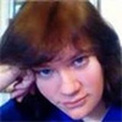 My colleagues have made an important distinction that readers used to know without being told. Has that changed? Maybe. In a world where people often have a hard time distinguishing between fantasy and reality, we may need a "DISCLAIMER: . . . Read more here.  Robin Lythgoe, author of As the Crow Flies, has some thoughts to add. I can't wait to read them . . . ! Fantasy and sci-fi--No, fiction authors (at least those I know) write to entertain. We write about people. People, both men and women, are often violent, cruel, abusive, and criminally selfish. Our world has a long history of them, from Cain to Bashar-al Assad, from Jezebel to Griselda Blanco. Fictional worlds are rife with them as well . . . Read more here. 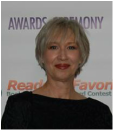 Finally, I have something to say . . . My comments are directed in particular to the issue of violence against women in fantasy stories. The world has changed dramatically, even since I was a child, with regard to the place of women in our society and the options open to them. I’ve experienced the changes and benefitted from them. Still, I recognize that these changes occurred largely in the “western” world, that portion historically influenced by a Judeo-Christian ethic. Women in many other places have not been as fortunate as have I. In some cases, they live in what might be called “medieval” times. This is an important issue, as many fantasies are played out in medieval-type worlds. Accordingly, I expect that the manner in which women are treated in those stories might well differ from the world in which I live today. Even so, fantasy stories are set in make-believe worlds. Those worlds can be whatever the authors want them to be. In this regard, I will address my comments with an eye toward two famously popular fantasy series—neither of which I will name. The first series is one I fully enjoyed. The author offered numerous strong women—as leaders and even as warriors. Yet there were those within the story who were victims, sometimes of terrible violence. At times, these women were the very same ones generally portrayed as strong. Reading of the violence others imposed upon them was difficult, but it felt authentic. The stories rang true. Perhaps most significantly, in many cases, the characters victimized in the story, also overcame their circumstances, as many women do in the real world. There is another series I read because it was so popular that I had to know what all the buzz was about. I did not enjoy it. I found within the pages, not a single ethical or worthy character—man or woman. Oh, I take that back. There was one. He was killed off in the first book. Things went downhill from there. Throughout this series, women play a single role—that of sexual object and/or to be violated on some other level. I’ve had conversations about this series with both men and women. I know of men of honor who found the stories despicable. However, one young man I recall quite liked the series. It later came as no great surprise to me when I learned that he is quite the bully. I also know women who’ve “enjoyed” these stories—though for the life of me I cannot figure out why they would. In any case, each time I’ve suggested that although I recognize the series is deemed part of the “dark” or “gritty” sub-genre of fantasy, the lack of any upstanding character(s) and of the treatment of women throughout, seriously bothered me. Invariably, those who liked the series have said something like: “But that’s the way the world was.” My response? “Oh, no, no, no. The world in the story was not a real world, current or past. It was the world the author wanted to create. It was a world he apparently enjoyed enough and identified with enough, to want to share it with others. He could have drawn at least one worthy character. He could have created at least one woman whose main purpose in the story rose above her sexuality or at least above her vulnerability to predators. He did not. I can only conclude that he does not see women in any other role, or that he is unwilling to consider that they might serve any other purpose. This reader concluded that the author found his position to be one worthy of sharing with others—and there’s the real shame of it all . . . You might ask what the impact of these books has had on my own writing. I don’t think any, in particular. Regardless of what I’d read in the past, the world I chose to create was one with some balance. Yes, sometimes women are victimized. I do not concentrate on the brutality of the events, or drag them out for emphasis or shock value. But in my story, using the reality that violence against women does occur, helped to lend credibility to the tale. It helped make the “bad guys” readily identifiable—by virtue of their behavior in general, and with regards to their treatment of women, in particular. I also, however, created a world with strong women who lead, persevere, overcome—because that is the world in which I live, the one in which I would want to live, the one I wanted to introduce to others—though in reality, it doesn’t exist. Please join us again in May! It is March already and in my neck of the woods, it came in with a mighty roar! Notwithstanding what goes on around us, however, this first Friday of the month marks the day for we Quills to post a joint blog article. This month we are sharing thoughts on “books we love.” Welcome and thank you for reading. Robin Lythgoe, author of As the Crow Flies, is up first. My grandmother used to call me “Robin the Hood” when I was very little. I was understandably confused—and then I learned about the legendary Robin Hood. The nickname became something of a badge of honor, though I have no idea why she would compare me to a thief. I was innocent! Naturally, I read and watched several versions of the tale, but when I read Lady of the Forest, by Jennifer Roberson, I fell in love. Read more here. Next comes Kristie Kiessling, author of Sanguis Dei. In 1995 an author team wrote Relic, a murder mystery/suspense novel about the New York Museum of Natural History in which paying customers to the museum wind up brutally murdered in the dark corridors and closed off rooms. Graduate student, Margo Green, believes the murderer might not be human. Read more here. Finally, I have a little to say . . .
While I love to read fantasy, I have not selected a fantasy story to share. Rather, I am going back in time to a great and timeless classic. Specifically, my choice is Les Miserables, by Victor Hugo. I’ve heard people over the years say they gave up on Les Miserables, as a difficult read. I suppose there is something to that. Yet I consider it the most incredibly beautiful tale ever written—the story, sure—but even more so, the manner in which it is told. It is like poetry—no . . . music. Hugo can sum up all of a person's past and present, their experiences, how others perceive them, their likely future—in about a page. Consider, for example, his introduction of the street urchin, Gavroche: . . . people noticed on the Boulevard du Temple, and in the regions of the Chateau-d'Eau, a little boy eleven or twelve years of age, who would have realized with tolerable accuracy that ideal of the gamin sketched out above, if, with the laugh of his age on his lips, he had not had a heart absolutely somber and empty. This child was well muffled up in a pair of man's trousers, but he did not get them from his father, and a woman's chemise, but he did not get it from his mother. Some people or other had clothed him in rags out of charity. Still, he had a father and a mother. But his father did not think of him, and his mother did not love him. He was one of those children most deserving of pity, among all, one of those who have father and mother, and who are orphans nevertheless. This child never felt so well as when he was in the street. The pavements were less hard to him than his mother's heart. His parents had dispatched him into life with a kick. He simply took flight. He was a boisterous, pallid, nimble, wide-awake, jeering, lad, with a vivacious but sickly air. He went and came, sang, played at hopscotch, scraped the gutters, stole a little, but, like cats and sparrows, gayly laughed when he was called a rogue, and got angry when called a thief. He had no shelter, no bread, no fire, no love; but he was merry because he was free. Can’t you just picture him? Perhaps the greatest part of this story for me, however, is the concept of self-sacrifice. Consider, for example, the Bishop of D--, who believed in tithing—in the reverse. He kept ten percent, and gave away ninety. In my estimation, no other has ever come close to telling a story of self-sacrifice as well as Victor Hugo. Another example of this is his, Toilers of the Sea. It is a very slow read, but if you can get past the continual review of the local flora and fauna, to find your way to the end of the tale, you will once again, discover a story of sacrifice. Reading these tales gives me confidence in the goodness of mankind. This month, we Quills conducted short interviews with authors of other fantasy works. Thus, I would like to introduce you to one of my new and dear Australian author friends, L. J. Clarkson. L.J. is the author of The Silver Strand (Mastermind Academy, #1) and Heaven and House – Rise of the Alpha. She writes for middle graders and trust me when I say that she has a unique ability to think and speak like one! She offers some interesting and off-beat characters, and providers readers with some good laughs! Q: Thank you for joining me, L.J. To start out with, what age group do you write for and what attracts you to write for that group? A: Having a wild imagination, and quirky sense of humour, it suits the middle grade fantasy genre that I write for. I think I’m a ten-year old trapped in an adult’s body. Q: What is the most difficult thing you find about the writing process and how do you deal with that issue? A: Doubt cripples my writing at times. I worry that my writing isn’t good enough, the situations aren’t funny enough. my characters are flat, and that no one wants to buy my books. Sometimes it’s enough to make me want to quit. I deal with it by reminding myself that ultimately, I write as a creative outlet, that I write for me, and that is all that maters. Having kids love my books is the icing on the cake! Q: What is the favorite character you’ve created to date, and why? A: Definitely Gaybreeeal from my new book Heaven and Hound. I’d never written from the perspective of an enemy before, so she was a ball to write. She’s flawed, mean and deliciously nasty. Through her, I got to do truly evil things—like feeding hellhounds poisoned chicken wings—that I would never do in real life. Find out more about L.J. on her website at http://mastermindacademy.net, where you can also read the first two chapters of The Silver Strand. (For my review of The Silver Strand, see http://www.oathtaker.com/patricias-reviews-of-other-works/chaos-worry-and-fun.) Check out L.J.’s Goodreads author page on Goodreads at https://www.goodreads.com/author/show/7212767.L_J_Clarkson. (Don’t forget to follow her there!) Finding fun and interesting reads for middle graders can be difficult. My note to all the parents of middle-graders out there is: Look no further than L.J. Clarkson.  Next up, is Kristie Kiessling. Kristin is the author of Sanguis Dei. I hear tell that sometime in the late 1980's, Deanna Smith, author of the children's book: The Dragon's Rocketship received an old Mac Plus computer from her step-Dad and Mom. Trees all over the world heaved a sigh of relief. Because Deanna writes. About everything. Anywhere. All the time. Read more here.  Finally, "Quill" Robin Lythgoe, author of As the Crow Flies, offers the following: A.E. Marling leaped into the indie writer scene about three years ago with his impressive debut, Brood of Bones. (Not that I’ve talked about that before, but who’s counting?) Behind the book’s gorgeous cover is a story about an enchantress with a sleeping problem and a city full of pregnant women. All of them, from virgin to grandmother. What’s a curious, respectable, responsible woman to do? Read more here. Thank you for joining us. Please do so again!  The old year is behind us (and I cannot say I am sorry about that) and 2015 begins. What better way to do so than to join my fellow Quills in a treasure hunt. Our search will take us through our book shelves. Beginning with a set list of what we were to search for, we all got busy. So, here goes! Robin Lythgoe, author of As the Crow Flies, is up first. Here is what Robin found while scrounging around: Rummaging through my bookshelves (both physical and digital) makes me feel like a dragon admiring its treasure. I have silver and gold, precious jewels, priceless collections of beautiful words at my very fingertips! The hardest part of this task? Getting sidetracked. I want to read this! no, this one! And that one, too! Oh, it’s been a long time since I’ve read <fill in the blank, there are lots of options>! I got so sidetracked, in fact, that it took me three attempts to collect the actual goodies. Read more on Robin's blog, here. Next up is Kristie Kiessling, author of Sanguis Dei. I wonder what Kristie found on her bookshelves. A Scavenger Hunt is fine for parties and kids in college. What we have here is a Scavenger Hunt involving books, and therefore, I deem it a Snark Hunt! Since I am often easily charmed with smiles and soap ... I endeavored to find ONE book with all ten. When that didn't work . . . Read more here. Finally, I had some fun with my treasure hunt. Here is what I found: 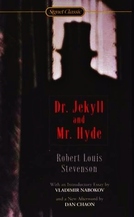 A book with the letter “J” - I assume this one means "a book with a title including the letter 'J' and so, I found this one fairly easy. My choice is Jekyll and Hyde, by Robert Lewis Stevenson. Oh yes, I know, the full name is The Strange Case of Dr. Jekyll and Mr. Hyde, but as most refer to it by its shortened name, so too will I. This is a great read, showing the risk of taking physical beauty too seriously. I highly recommend it if you have not managed to read it as yet. My only regret with regard to this story is that the last time I went to New York, shortly after the Broadway show started to play, I missed it. Why? Well, it seems the reviews did not go well and thus, they pulled the show the week before I arrived . . . 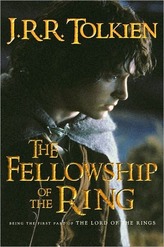 A fantasy classic – What could be more “classic” than this decades old The Lord of the Rings, by J. R. R. Tolkien, who is commonly considered the father of the modern fantasy. While I’ve read all the tales, I admit: this is one situation where in my mind, the movies outdid the stories. The lighting, the settings, the music, will all go down as some of the best of all time, in my mind. Pictured here is a cover for Part 1. 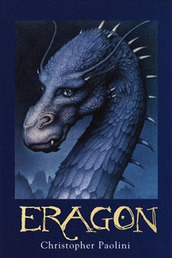 A book with a dragon on the cover – Here, I had to go with Eragon, by Christopher Paolini. Interestingly, Paolini, a home-schooled youth, wrote the first draft of Eragon at only 15 years of age. Whether you find it nothing more than a modern re-telling of The Lord of the Rings, or a new and unique story in itself, one thing is for certain: if a 15 year old can put together a story of this nature, so too can you! 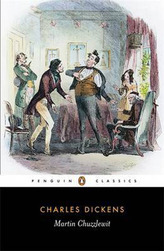 Oldest book on your shelf – By “oldest,” I am assuming the rules mean the oldest physical book, and not the one written the longest time ago. In this event, I believe that would be Martin Chuzzlewit, by Charles Dickens. My copy (not pictured here) is complete with binding that includes strings coming loose. The first time I read this story, I was “new” to Dickens. I was so confused! Why did the writer continually speak of Chuzzlewit as such a sinless, humble character! It seemed to me that we was quite the opposite. Later, I read all the other Dickens works and tuned into his gift of satire and sense of humor. So I re-read the story and yes, then I did “get it.” 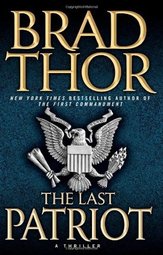 A book with a shield on the cover – Here, I chose the thriller, The Last Patriot, by Brad Thor. Truthfully, I don't remember anything of this tale, but it has a seal on the cover! 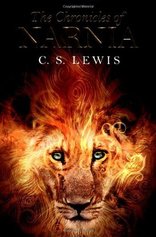 A book with an animal in it – Here, I chose The Chronicles of Narnia, by C. S. Lewis. I know this is supposed to be one of the most famous “fantasy” stories of all time—Chrisian fantasy at that—but I admit, I found the stories VERY slow, and not entirely engaging . . . 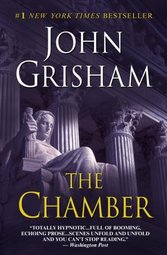 A cover with only words (although it is not the one shown here) – The Chamber, by John Grisham, a story I’m sure I read, but do not recall much about. In general, I very much enjoy mysteries and thrillers. Also, as an attorney myself, I enjoy the occasional “legal thriller.” Unfortunately, I ofttimes find them to be like caricatures of real-life attorneys and of the practice of law. In that regard, they leave me a bit frustrated. Accordingly, I haven’t read one for some time. 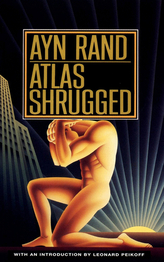 A cover with gold lettering – Atlas Shrugged, by Ayn Rand. While a worthy read, I find that, notwithstanding Rand's important (timely and timeless) story, her inflexible anti-God attitude gets on my nerves. 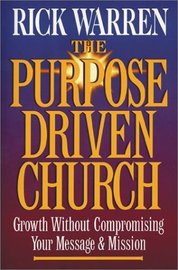 A book written by an author with a common last name (and one which, in this case, also has a cover with only words). – I had trouble determining what a “common” name is here, so I went with a “simple” name. Thus, I chose The Purpose Driven Church, by Rick Warren. 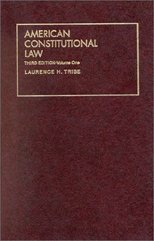 A red colored book – We’re going back to my roots here, as I choose Tribe’s law school textbook, American Constitutional Law. Most would not find anything particularly engaging here, as it is largely a mix of court decisions, but I’ve kept it on my shelf for over a quarter century now . . . While the treasure hunt rules do not require this, I thought I'd offer a single word to describe what is on my shelves. That word is "eclectic."
Please join us Quills again in February. |
Patricia RedingHere is where Patricia has posted interviews of other authors as well as her own thoughts on a wide variety of subjects. As to the interviews, the questions posed are intended to pull from authors, some interesting information about them that might otherwise have gone unknown. . . . Archives
July 2016
Categories |
